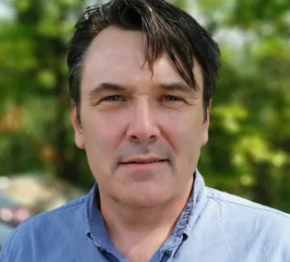
- This event has passed.
POSTPONED; Date TBD

The March 31 seminar is postponed to a future TBD date.
Please join us for a Great Lakes Seminar Series presentation:
Time: 1:30-2:30 pm EDT
Location: NOAA Great Lakes Environmental Research Laboratory, Lake Superior Hall
Presenter: Dr. Michael McKay, Executive Director and Professor – Great Lakes Institute for Environmental Research
Title: Life under ice: The rise and fall of Lake Erie’s winter algal bloom
Webinar Registration: https://attendee.gotowebinar.com/register/5710606513973740043
About the presentation:Ice cover presents a logistical obstacle to our full understanding of function of north temperate ecosystems. Reflecting this, ecosystem models frequently underestimate, or even neglect biological parameters associated with ice cover. Despite the perceived inhospitable environment imposed by cold temperatures and ice cover during winter in Lake Erie, work over the past decade has revealed numerous examples of high biological activity with abundant phytoplankton biomass dominated by psychrophilic, filamentous diatoms. The diatoms are physiologically robust and the diatom bloom persists through early spring, eventually contributing to carbon export in Lake Erie’s central basin. During mild winters, the bloom is reduced, likely due to light limitation coincident with deep wind-aided mixing. These surveys have demonstrated that diatom assemblages possess ice nucleating abilities, a characteristic promoting ice formation and which enables the winter diatoms to maintain a favorable position in the photic zone when the lake is ice covered. Our recent efforts have focused on mechanisms of bloom decline where chytrid parasites and other pathogens are implicated. Broadening the impact of this research has been a unique partnership with the U.S. Coast Guard promoting citizen science in support of winter data collection.
About the speaker: In 2019, Mike McKay joined the University of Windsor where he serves as the Executive Director of the Great Lakes Institute for Environmental Research and Professor in the School of the Environment. Mike received undergraduate- and graduate degrees in Biology from Queen’s University at Kingston and McGill University (Montréal), respectively. Upon completion of his doctoral work, he held postdoctoral fellowships at the University of Alaska Fairbanks and with the University of Delaware where he served concurrently at the Department of Energy’s Brookhaven National Laboratory on Long Island, NY. It was during this period that Mike became active in research on aquatic nutrient cycling through his involvement with the ecosystem-scale ocean iron fertilization projects being conducted by scientific personnel from Brookhaven at that time. Mike’s research expanded to include large lakes on his arrival to Bowling Green State University where he served on the faculty for over 21 years studying the biogeochemical cycling of nutrients, phytoplankton and bacterial community dynamics and more recently, winter limnology involving research coordination with icebreaking programs of Canadian- and U.S. Coast Guards.
Among Mike’s research honors, he was awarded an Alexander von Humboldt Foundation Research Fellowship in 2005 where he was resident at the Helmholtz Centre for Ocean Research Kiel (Germany) and in 2013, was named Visiting Scholar at the Large Lakes Observatory of the University of Minnesota. He is the author of over 95 peer-reviewed manuscripts, is a co-recipient of the 2019 John Martin award from ASLO and currently serves as an Associate Editor for the Journal of Great Lakes Research.
**Registration is not required, however please note important visitor information**
Important Visitor Information
All in-person seminar attendees are required to receive a visitor badge from the front desk at the NOAA Great Lakes Environmental Research Laboratory facility. Seminar attendees need to present a valid U.S. photo ID or green card. If you are a Foreign National, advance notification of at least 48 hours is needed so that security guidelines are followed. You will need to present your passport (a copy will NOT work). For questions regarding building access, or assistance in obtaining Foreign National clearance, please call 734-741-2394. Email contact: [email protected]
_____________________________________________________
Questions? Contact Mary Ogdahl: [email protected]
Visit ciglr.seas.umich.edu for more information.
